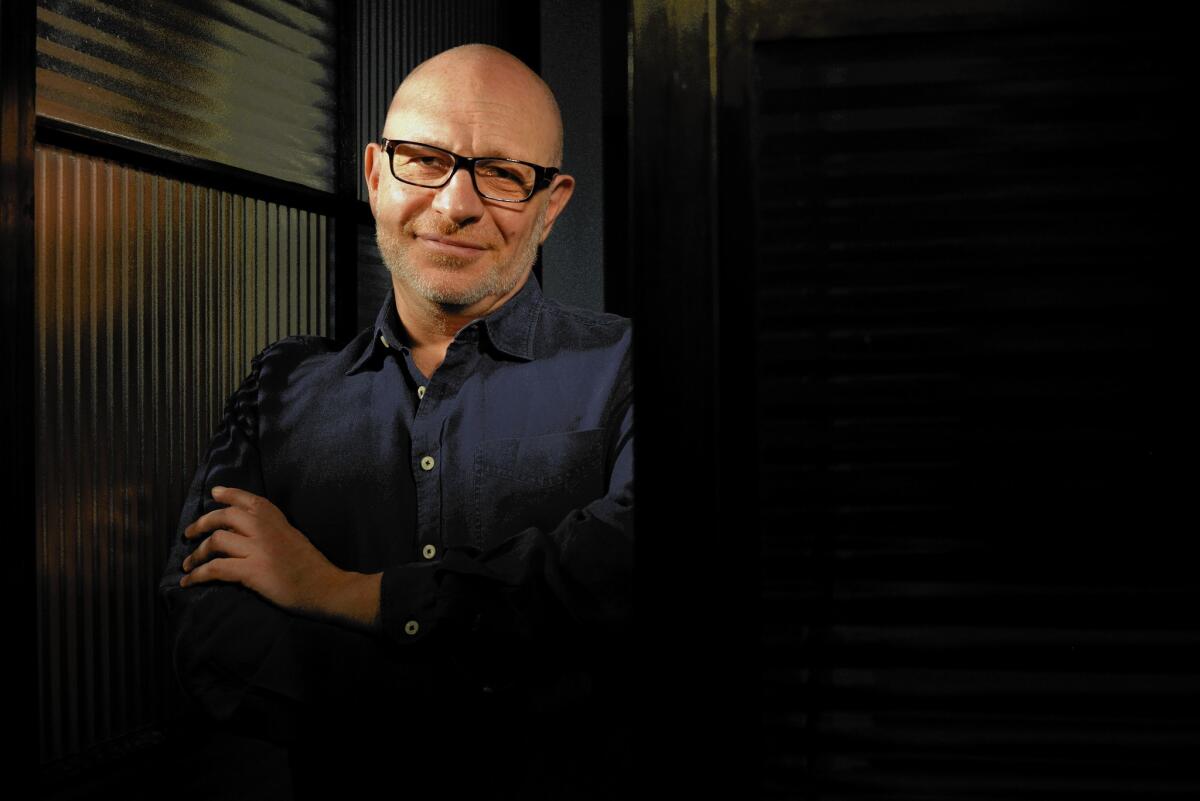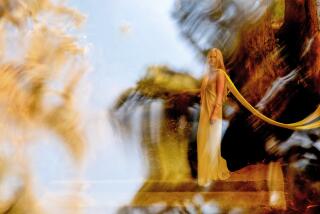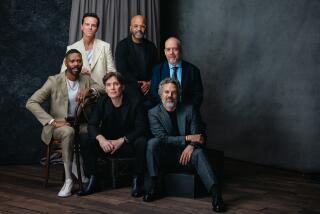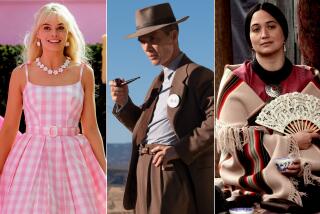Akiva Goldsman completes his ‘Winter’s Tale’ quest

- Share via
You might not peg the guy who wrote “I, Robot” and adapted “The Da Vinci Code” as a self-described “shameless romantic.” But then, when looking back on “A Beautiful Mind,” the movie that won him a screenplay Oscar, Akiva Goldsman remembers it as a “promise that love conquers all.”
So when Goldsman says that he likes to see the world as “a grown-up fairy tale where nothing is without purpose,” it makes perfect sense that 30 years ago, riding the New York subway, he cried like a baby while reading Mark Helprin’s novel “Winter’s Tale.” A bighearted book that toggles between two centuries in a mythic New York City, Helprin’s story ponders the notions of enduring love and eternal destiny. It’s dense, complicated and magical, considered by some to be among the great American novels of the past half-century.
When Goldsman gained currency in Hollywood, he persuaded Warner Bros. to option Helprin’s novel for him with the idea that he’d adapt and produce. But the book is a beast and Goldsman found himself easily distracted by other projects, producing the Will Smith superhero comedy “Hancock” and writing, producing and directing episodes of the Fox sci-fi series “Fringe.”
BEST MOVIES OF 2013: Turan | Sharkey | Olsen
“There’s something very literary and wondrous about the idea of misunderstood destiny and loss leading to a different kind of gain,” Goldsman, 51, says by phone from his New York apartment. “But it was a hard concept for me to figure out how to put on screen for quite a long time.”
Goldsman was taking another pass at “Winter’s Tale” in summer 2010 when his wife, Rebecca Spikings-Goldsman, died of a heart attack. She was 42. After months of trying to think and feel his way through the traumatic loss (“Everything just breaks,” Goldsman says), he woke up one morning and started writing “Winter’s Tale” again. Goldsman worked at home in a tiny bell tower that his wife had converted into an office.
“The book suddenly went from something I loved to the only thing that mattered,” Goldsman says.
And as such, Goldsman felt he needed to direct the film based on it. To make that happen, he called in 20 years of favors, enlisting old friends like Russell Crowe, Jennifer Connelly and Will Smith to work for scale (or slightly above it). He also waived his remaining writing fees and put his Directors Guild minimum salary back into the movie, which opens on Valentine’s Day. Warner Bros. looked at the material, which, because of its fantasy elements, would require a fair amount of effects work, and figured it would cost about $75 million to make. They told Goldsman he could have about half that.
PHOTOS: Box office top 10 of 2013
Goldsman pared most of the book’s unexplained mythology, pushing the love story between a 19th century thief (Colin Farrell) and a dying young woman (“Downton Abbey’s” Jessica Brown Findlay) to the fore. Crowe plays an underworld gang leader, and Smith has a cameo best left to the imagination.
Filming, heavy on location work in New York, was hectic, delayed slightly by Hurricane Sandy. The company hired to do the visual effects work, Rhythm and Hues, went bankrupt. Goldsman kept driving forward, happy finally to be making the film.
“I’m the kind of romantic that likes to find the meaning in things,” Goldsman says. “Just in its natural course, life is sufficiently hard. And if you can find the hope underneath that, that there is connectedness and some reason to it, then there’s some comfort in that. That’s what I’ve learned anyway. And I think that feeling is in the movie.”
More to Read
Only good movies
Get the Indie Focus newsletter, Mark Olsen's weekly guide to the world of cinema.
You may occasionally receive promotional content from the Los Angeles Times.











